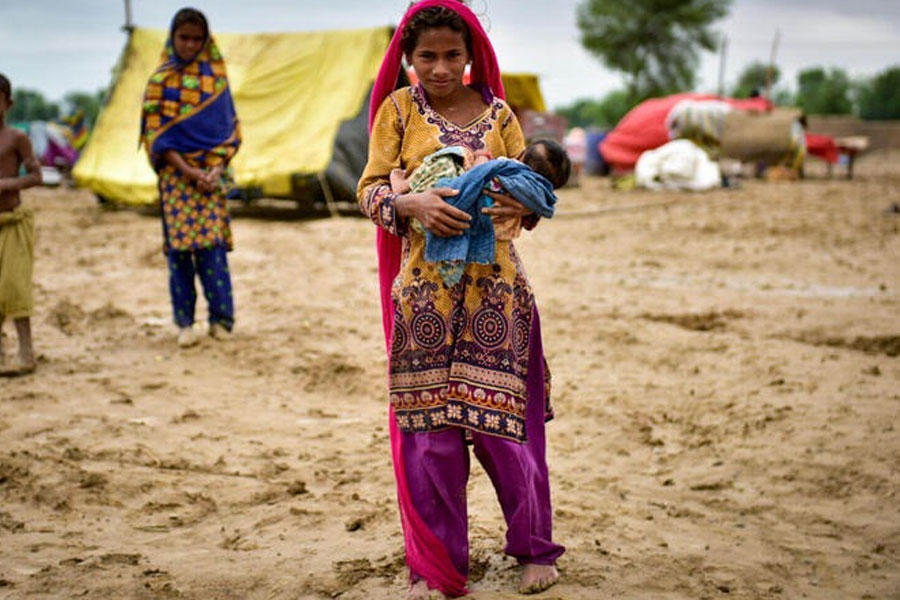- Many countries’ climate plans lack a commitment to protect the sexual and reproductive health of women and girls, as revealed by a recent UNFPA report.
- Out of 119 countries with climate plans, only 38 (less than a third) consider contraception, maternal and newborn health, while 15 address gender-based violence in their strategies.
- Women and girls are disproportionately affected by the climate crisis, facing risks to maternal health, gender-based violence, and child marriages due to climate-related factors. The report emphasizes the need to integrate gender-focused measures into climate strategies.
A recent report by the United Nations Population Fund (UNFPA) has revealed that the climate plans of many countries lack a commitment to safeguard the sexual and reproductive health of women and girls.
The study found that out of 119 countries with published climate plans, only 38, or less than a third, have considered access to contraception, and maternal and newborn health in their adaptation strategies. Additionally, 15 of these countries address gender-based violence in their plans.
Research has consistently demonstrated that women and girls are among the most severely affected by the climate crisis. For instance, increased temperatures have been linked to adverse maternal health outcomes, and complications during pregnancy and menopause, and extreme heat can lead to premature births and a higher risk of stillbirth.
Furthermore, climate-related events such as droughts can exacerbate gender-based violence and contribute to an increase in child marriages, as families facing economic hardships seek to lessen their financial burden by marrying off their daughters.
A recent study by Ohio State University revealed that in years with prolonged heatwaves, the number of marriages involving girls aged 11 to 14 in Bangladesh increased by 50%.
The UNFPA report also underscores that climate-driven phenomena, such as tropical cyclones, have damaged women’s health facilities in regions like East Africa. Moreover, women and girls are disproportionately affected by climate-related food insecurity and malnutrition.
Dr. Natalia Kanem, the Executive Director of UNFPA, emphasized that the climate crisis has a gender-specific impact, and women and girls are often the most affected, despite having the least responsibility for the global climate emergency. She stressed the importance of prioritizing sexual and reproductive health and rights in climate strategies.
While most countries with published climate plans fall short in addressing sexual and reproductive health and rights, the report highlights some countries that have made commendable progress. Paraguay, for example, recognizes the need to develop climate-resilient health systems to respond to extreme weather events.
The Seychelles and Benin have intentions to improve maternal and newborn health outcomes. Furthermore, nine countries have described policies and interventions aimed at addressing the rise in violence against women in the context of climate change.
Among the 13 recommendations made in the UN report, countries are urged to collect evidence on the impacts of climate change on sexual and reproductive health and violence against women and girls, integrate relevant policies and interventions across sectors, ensure inclusivity and representation in climate policy development and implementation, and bolster the resilience of health systems to climate change.
The report was conducted in collaboration with Queen Mary University of London and Canada’s International Development Research Centre.
Stay tuned to WOW360.
